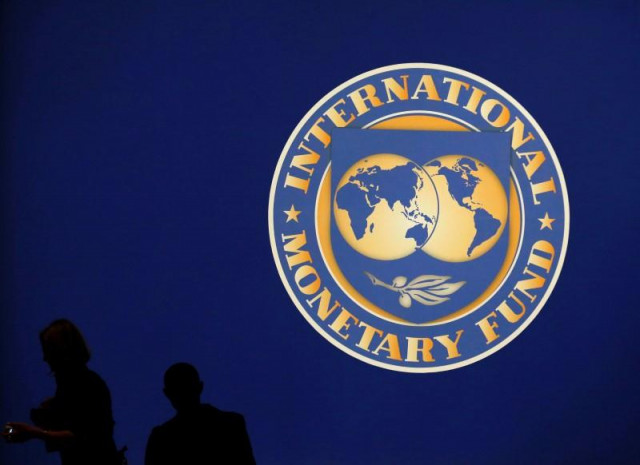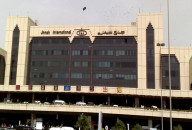Content and context of IMF programme
Analysts trace historical roots, talk about long-standing structural problems

PHOTO: REUTERS
The interesting phrases to score politically are “begging bowl”, “slavery” and “compromise on national sovereignty”. They ignore an important fact that the capitalist system is based on debt and the IMF and other multilateral institutions are specifically designed to assist countries facing acute external problems.
The media is replete with the analysis of the context, content and timing of the IMF programme. Some analysts argue that the IMF programme needs to be understood in historical context as Pakistan has been undertaking these programmes since 1959.
Every now and then, Pakistan has recourse to the IMF because the emergence of crony capitalism over the decades did not allow natural growth of capitalism in the country.
Pakistan fulfills all IMF commitments: SBP chief
Analysts trace historical roots and talk about long-standing structural problems of the economy. They bring up the argument that the Dutch disease has plagued the economy since the 1980s where an overvalued exchange rate encouraged cheap imports and discouraged exports which, in turn, led to a high trade deficit.
Some analysts talk about the content of the programme where they highlight prior actions and front and back-loaded characteristics. If the programme is front-loaded, it would compel the government to quickly follow reforms and give less space to operate. On the contrary, a back-loaded programme involves delayed implementation of reforms and is considered relatively soft.
According to the analysts, the budget has been framed in light of the directives given by the IMF since it demanded a tax-loaded budget.
Furthermore, upward tariff adjustments of utilities are the key where prices of electricity and specifically gas have hiked a great deal.
In addition to these, subsidies need to be either completely withdrawn or targeted. Exemptions given to certain sectors of the economy need to be withdrawn in order to generate additional tax revenue.
The third camp discusses the timing of the programme where the debate centres round inevitability of the programme. Since the programme is indispensable for Pakistan’s economy, why delay the programme. Delaying the programme will rattle the confidence of domestic and international institutional investors. A few among them argue that delay in the programme will increase the bargaining power of policymakers. Unfortunately, the government could not achieve the intended benefit.
'IMF programme aimed at reducing Pakistan's public debt'
Regardless of the differences in the analysis, the institution of IMF has been designed to serve global capitalism. Wherever the flow of capital is disrupted, it will be there to ease out the flow. In addition to this, it broadly pushes for market fundamentalism where liberalisation, deregulation and privatisation are the key pillars.
Time and again, it is stated that the IMF has been serving well the global financial capital where independence of the central bank is the key. The independent central bank will set a so-called market determined exchange rate and interest rate. When domestic interest rate is elevated, the economy may experience hot money, which may compensate for the scarce foreign exchange reserves.
In short, every IMF programme attracts criticism from the political parties and particular sections. When these political parties are at the helm of affairs, they have recourse to the IMF and the blame goes to the previous governments.
Regardless of the political government, the economy has been facing deep-rooted structural problems where exports are unable to move up the value chain. Last but not the least, the government should focus and concentrate on the industrial capital.
The writer is the Assistant Professor of Economics at SDSB, Lahore University of Management Sciences (LUMS)
Published in The Express Tribune, June 24th, 2019.
Like Business on Facebook, follow @TribuneBiz on Twitter to stay informed and join in the conversation.



















COMMENTS
Comments are moderated and generally will be posted if they are on-topic and not abusive.
For more information, please see our Comments FAQ